Biobased resources
A major goal of the bioeconomy is to use larger quantities of biobased raw materials to produce energy, transport fuels and feedstock for industrial processes. This requires detailed analyses, simulations, concepts and processes. Major focus needs to be placed on issues relating to crop production, biomass potentials, land surface requirements, conversion technologies, biobased value creation networks and food security. Agriculture, forestry, waste management and the industry in general will need to work in concert as far as the raw materials all of them use or deal with are concerned.
-
Lentil cultivation in a producers’ association - EIP-AGRI Rhizo-Linse project - 23/05/2022
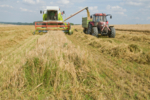
Complicated cultivation, fluctuating yields and complex cleaning: Leisa – as lentils are called in Swabian – are demanding. So to produce lentils economically, 130 farmers in the Swabian Alb have joined forces and set up the organic producers’ association Alb-Leisa. Their lentil harvests are processed and marketed by a company called Lauteracher Alb-Feld-Früchte.
-
Mini-factories for producing bioplastics - 05/05/2022
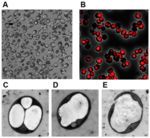
Using living cells as mini-factories to produce plastic from nothing more than water, sunlight and carbon dioxide; plastic that is also 100 percent degradable – it sounds far-fetched but it actually works: researchers at the University of Tübingen have genetically engineered cyanobacteria so that they fill their cells to the brim with polyhydroxybutyrate. The researchers are now turning the idea into reality with the development of pilot plants.
-
Lentil cleaning - EIP-AGRI Rhizo-Linse project - 26/04/2022
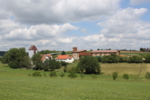
The Altdorf mill, just under 7 km south of the city of Böblingen, has operated lentil cleaning facilities since 2019, the year that the Sessler mill in Renningen, 20 km further north, ceased all operations including lentil cleaning. After receiving a number of enquiries from farmers and local mills, brothers Karl and Jörg Ruthardt took a chance and launched a lentil cleaning operation in addition to their mill and farm shop business.
-
ProteinDistillery GmbH - 20/04/2022
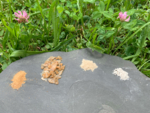
Yeast has been part of the human diet for thousands of years. ProteinDistillery GmbH now wants to revolutionise the environmentally friendly protein suppliers market by introducing brewer's yeast and secure the protein supply of the future.
-
pre-start-up company Wheyfinery - 13/04/2022
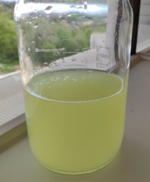
There is not much you can do with acid whey, which is why several million litres of it are disposed of every year. This is both costly and not sustainable. However, researchers at Tübingen University have shown: acid whey can be used to produce precursors for biofuels, fine chemicals and antimicrobial livestock feed additives. They have set up the pre-start-up company Wheyfinery in an endeavour to make their scalable biorefinery concept…
-
Filament winding technology for sustainable construction - 06/04/2022

One of the greatest challenges in the construction industry is the transition to more environmentally friendly and resource-saving buildings. Researchers at the University of Stuttgart are combining state-of-the-art robotic filament winding technologies with ancient local crops to produce stable and sustainable lightweight structures from flax fibres.
-
Lentil cultivation and cleaning on the farm - EIP-AGRI Rhizo-Linse project - 16/03/2022
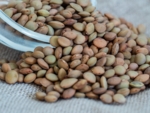
Lentils are among the oldest crop plants in Central European agriculture and were once a popular food in ancient Egypt, Persia and Mesopotamia. The legume was widespread in Germany until the mid-20th century, but has since disappeared completely from farmers’ fields. Over the past decade, lentils have reappeared as a crop grown locally and are cultivated in harmony with nature.
-
Alternative foodstuff ? - 09/03/2022
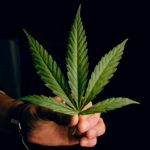
If there were a competition for the ‘crop of the future’, hemp would certainly be at the top. But not because of the intoxicating effect of some hemp varieties. Cannabis has the potential to help supply protein in the quantities required by a growing world population – in a sustainable way. The TASTINO project brings together researchers from academia and industry to work on ways to make the regional superfood available as a vegan alternative.
Website address: https://www.biooekonomie-bw.de/en/articles/biobased-resources







